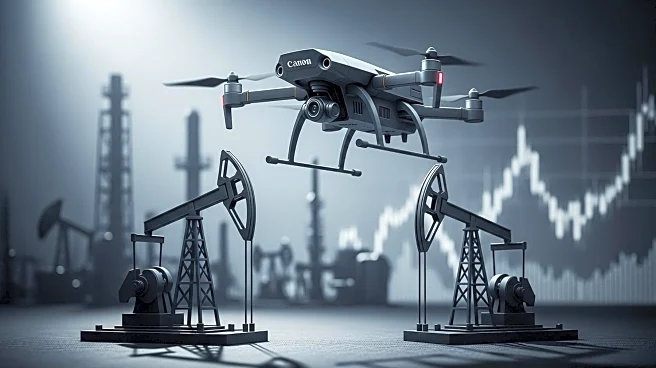What's Happening?
Recent Ukrainian drone attacks on Russian oil and gas infrastructure have led to increased instability in global oil markets. These precision strikes have targeted refineries, fuel depots, and logistics, significantly impacting Russia's ability to export petroleum products. The attacks are part of Ukraine's strategic campaign to weaken Russia's economic lifelines, with reports indicating that over a million barrels per day of refining throughput have been affected. The geopolitical tensions, combined with strong global demand, suggest a potential shift towards a bullish market environment.
Why It's Important?
The ongoing drone strikes on Russian oil infrastructure have significant implications for global energy markets. Russia is a major exporter of diesel, fuel oil, and kerosene, and disruptions in its supply chain could lead to increased prices and shortages in consuming regions. The geopolitical risks associated with these attacks may result in higher risk premiums and further volatility in oil prices. The situation underscores the vulnerability of global energy markets to geopolitical conflicts and the strategic importance of energy infrastructure.
Beyond the Headlines
The attacks highlight the evolving nature of warfare, where non-traditional methods such as drones are used to target economic assets. This shift has ethical and legal implications, as it blurs the lines between military and civilian targets. The long-term impact on Russia's domestic economy and potential internal unrest could further destabilize the region. The situation also raises questions about the effectiveness of sanctions and the role of energy security in geopolitical strategy.









